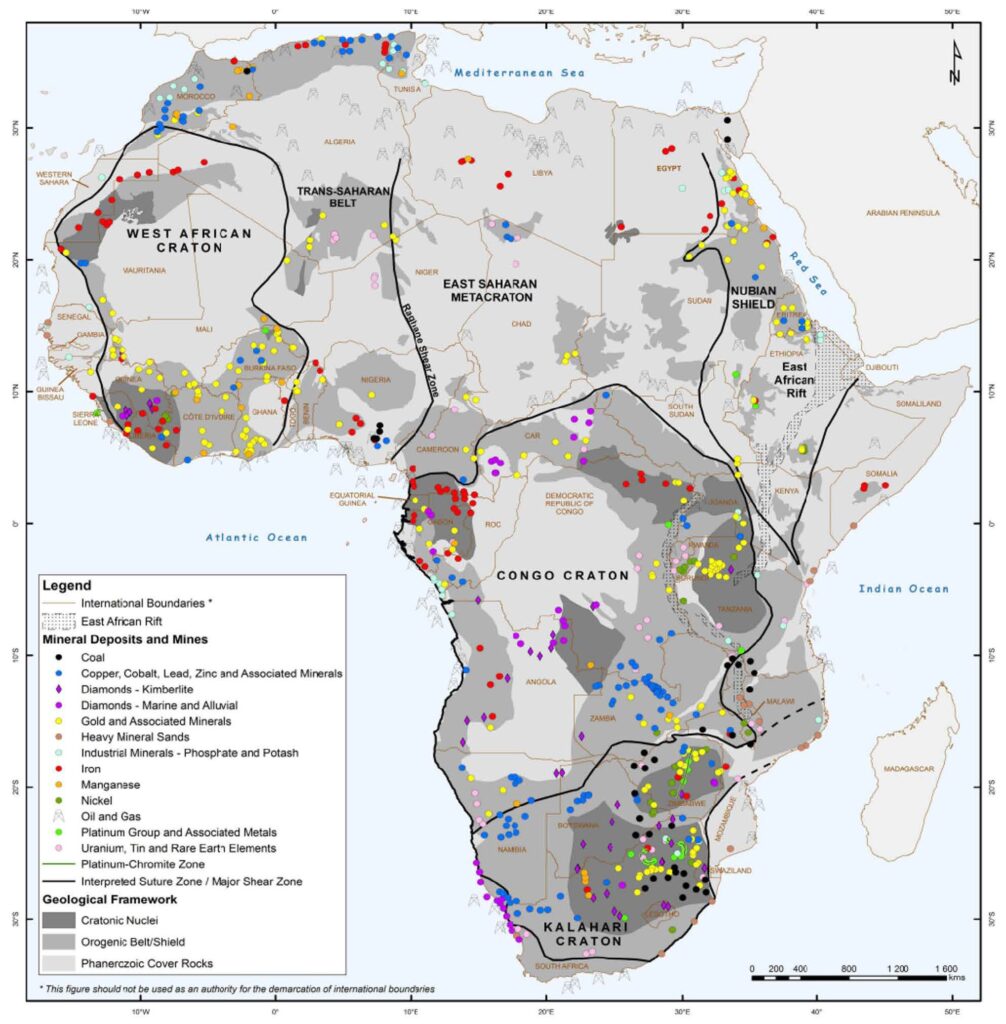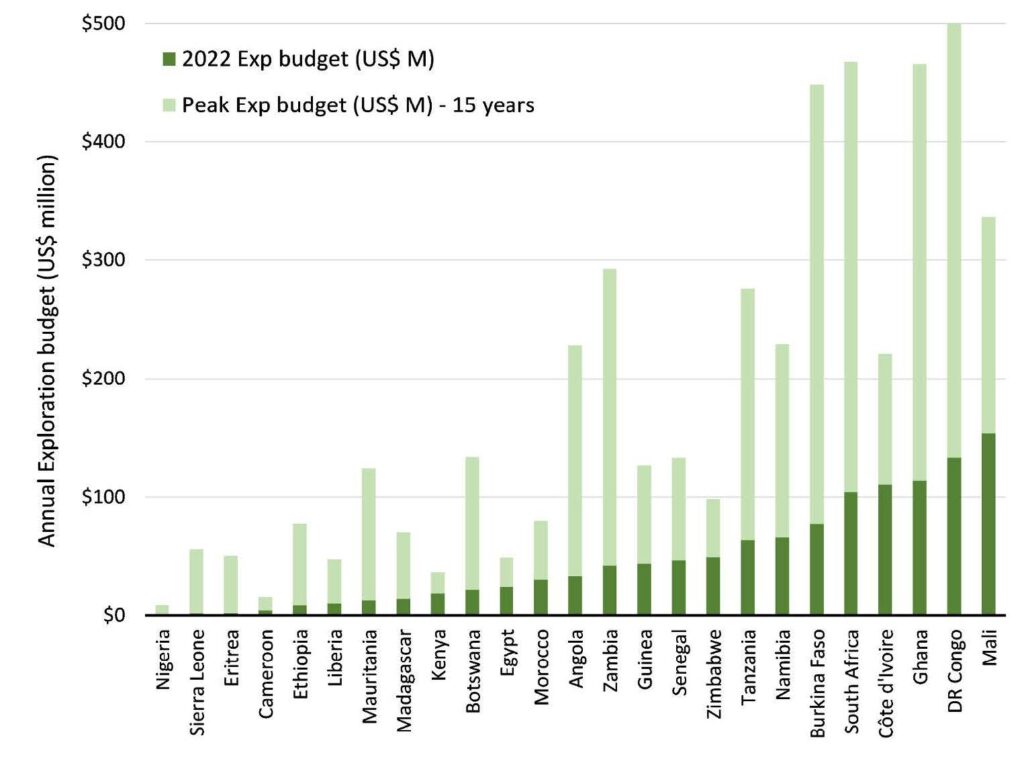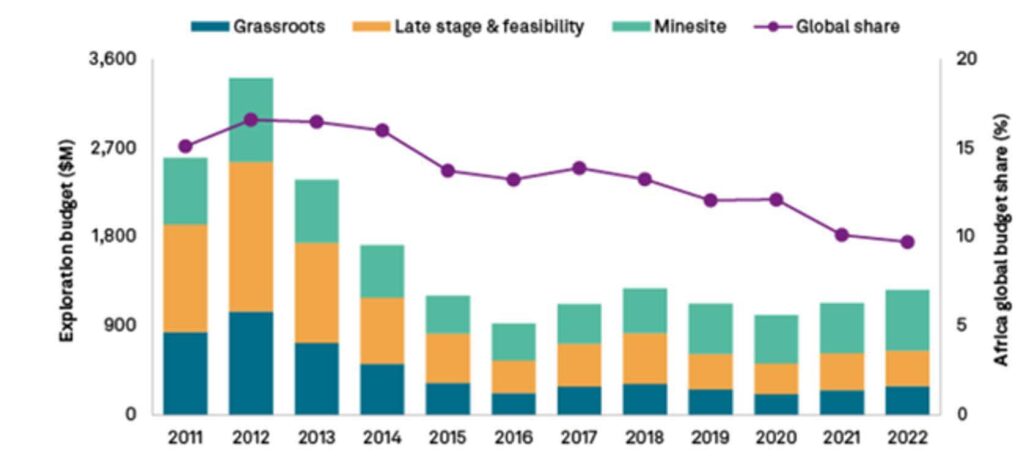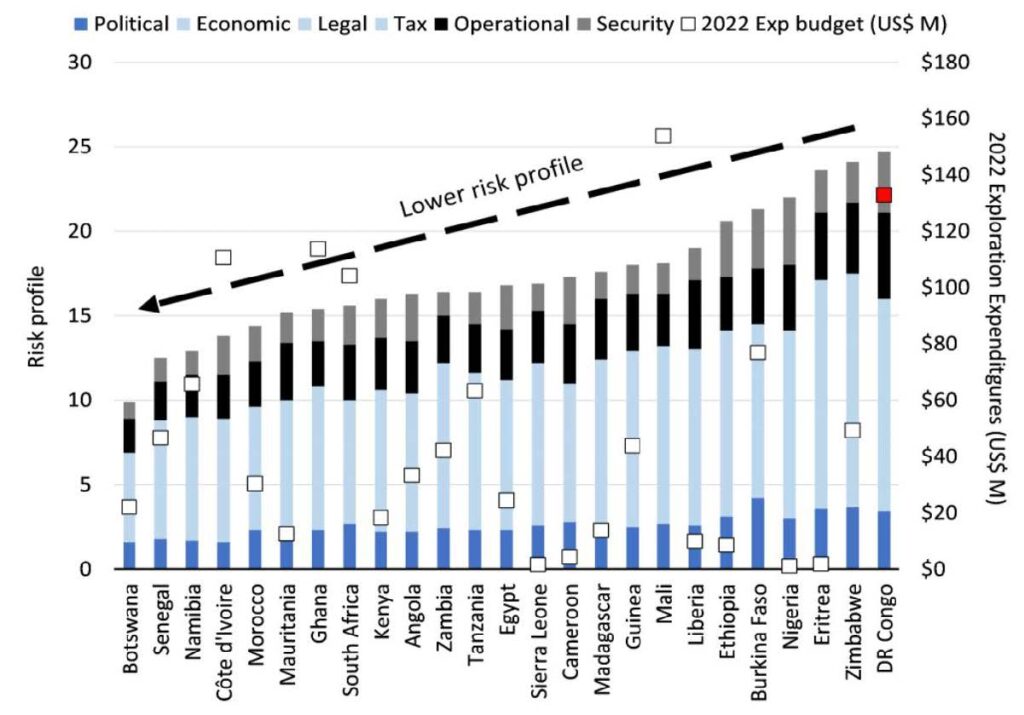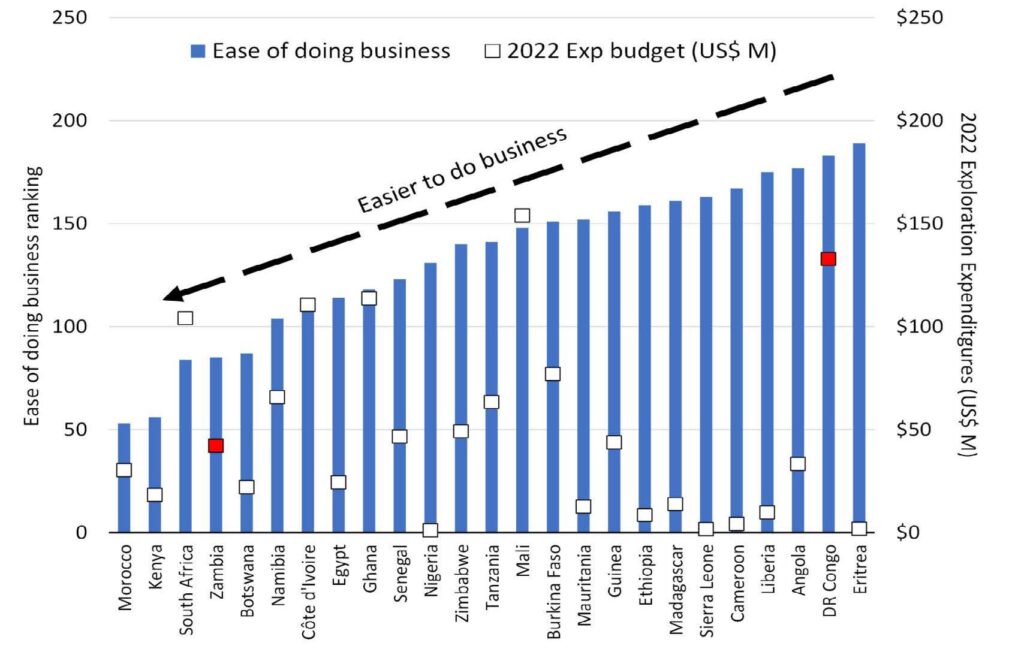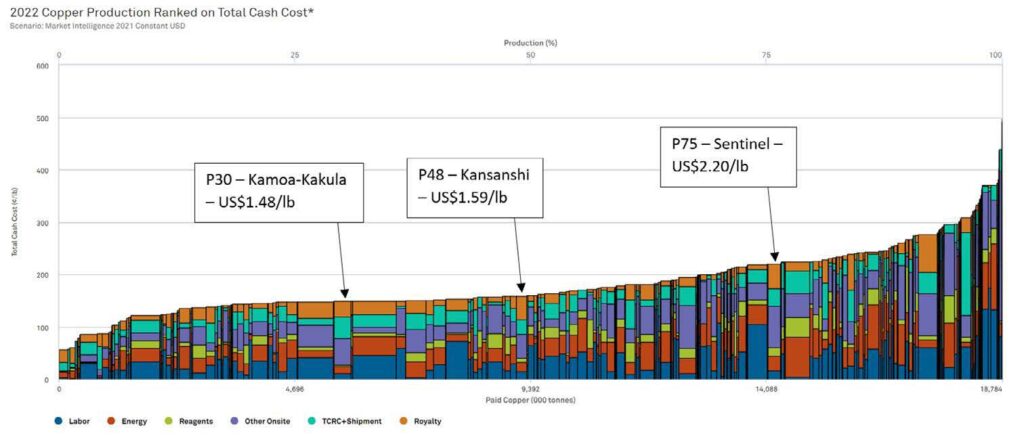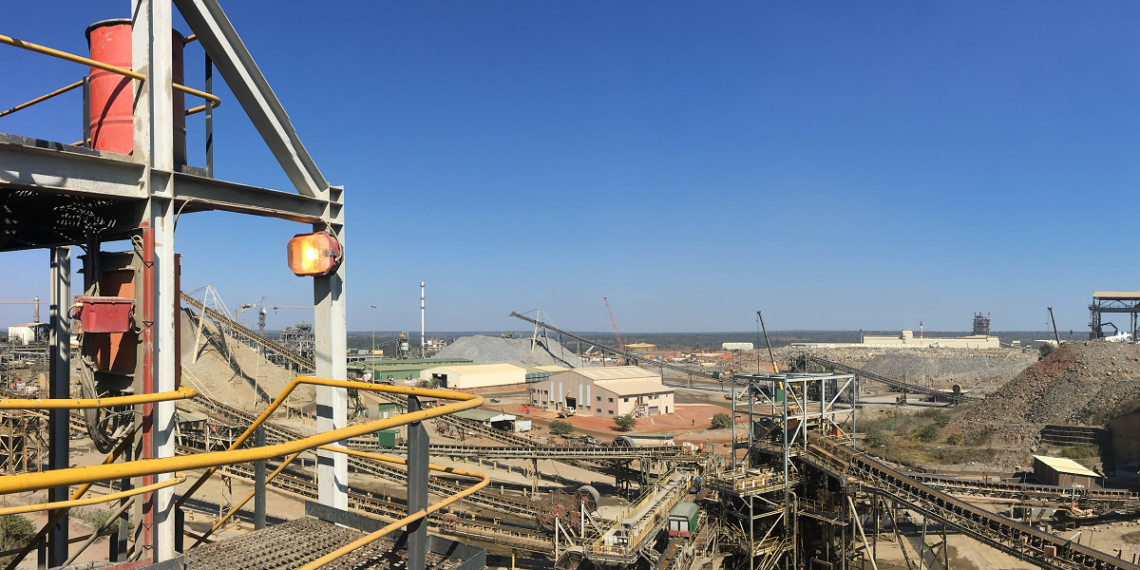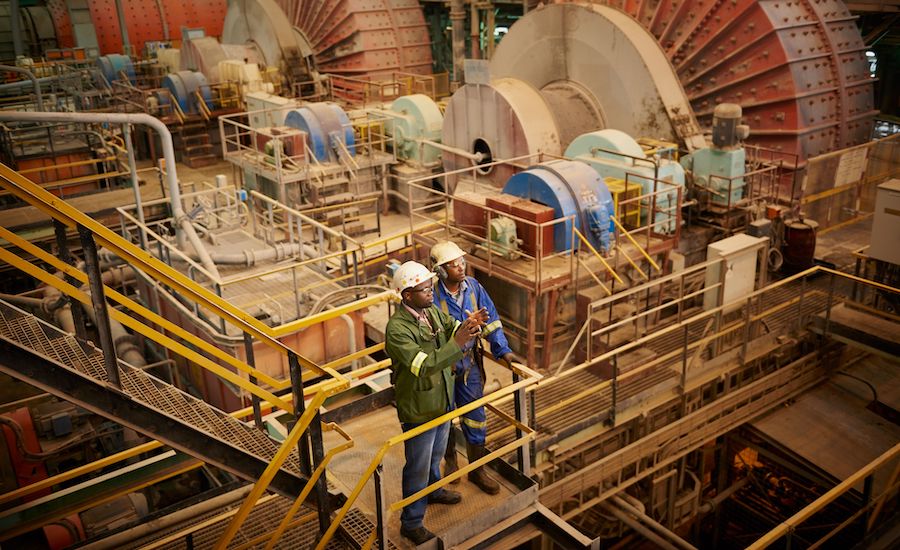Bloomberg News | February 17, 2023 |
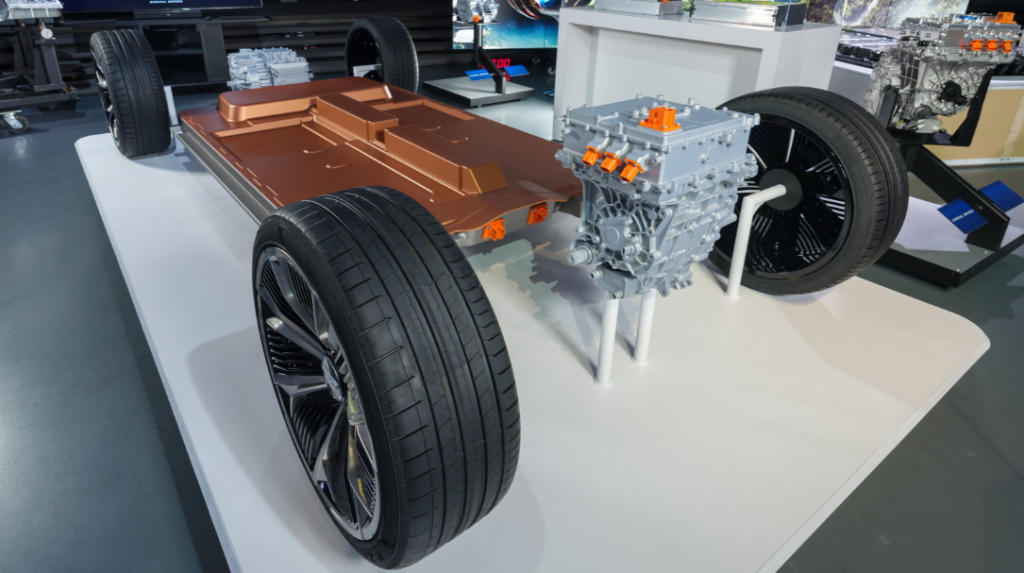
GM Ultium battery. Credit: General Motors
General Motors is trying to speed ahead in the race for metals underpinning the industry’s shift to electric cars.

The US automaker is competing for a stake in Vale’s base metals unit, people familiar with the matter said this month. A deal may give GM access to the Brazilian mining giant’s copper and nickel resources that are key to making EV batteries.
GM has made several such wagers recently, buying equity while rivals mostly sign supply deals. Last month, it bought a $650 million stake in Lithium Americas to help develop Nevada’s Thacker Pass mine, which may support output of as many as 1 million EVs a year. In October, GM invested $69 million in Australia’s Queensland Pacific Metals, a producer of nickel and cobalt. The moves are strategic bets to secure supplies that are getting increasingly sought-after.
“We’ll continue to work with many people in the industry, especially in lithium and the other critical minerals,” CEO Mary Barra said in an interview with Bloomberg Television in New York on Thursday. “I think we’ll be positioned to have a competitive advantage.”
GM is pledging to sell nothing but plug-in models by the middle of the next decade. The Detroit automaker has opted to build its own battery pack and dedicated EV platform rather than move quick with converted internal combustion hardware, slowing its initial electric push. Still, Barra said that output of EV models such as the Hummer pickup, electric Cadillac Lyriq, Chevrolet Silverado pickup and Blazer SUV will ramp up this year.
Securing stable battery-metal supplies would be a boon — especially given the sector’s volatility. Cobalt prices, for example, rallied sharply last year but have since come crashing down amid a sharp drop-off in purchasing from the Chinese electronics sector. Nickel briefly soared to over $100,000 a ton in March before ending the year under $30,000. Lithium became so expensive last year that Chinese factories that typically make ceramics for bathroom tiles produced the EV battery material instead.
GM is part of a bigger trend. Automakers including Ford have signed long-term mineral supply deals. Germany’s Volkswagen last year agreed to form a €3 billion joint venture with Belgium’s s Umicore for cathode materials. In 2021, Tesla struck a nickel deal with BHP Group and a cobalt pact with Glencore, and in March that year got involved in a mining venture in New Caledonia.
Those deals may also help the miners. Barra said GM can provide them with additional cash and will be a stable source of demand thanks to its target to sell 1 million EVs in 2025, and many more beyond that.
The industry may want to tread carefully. Amnesty International has warned that mining is linked to environmental issues and claims of human rights abuses. In an era when environmental, social and governance shortcomings carry severe reputational risks, GM could be exposing itself to criticism.
Vale faced criticism after the collapse of the Brumadinho dam in Brazil, which killed 270 people and released toxic sludge into the environment. The accident caused Vale to lose its position as the biggest iron-ore producer and sparked a company-wide safety and governance overhaul. Reparations continued to take the shine off its financial results years after the incident.
Several companies are looking for ways to reduce the environmental footprint of mining to minimize those ESG concerns. GM has invested in Controlled Thermal Resources, a startup working to extract lithium using renewable energy, and is backing Lithion, a Canadian startup that recycles EV batteries to reuse materials.
Despite its mining foray, GM has some catching up to do on EVs. The Detroit automaker sold just under 40,000 EVs last year, finishing behind Ford and far short of market leader Tesla. Barra vowed the company is just getting started, including with Chevrolet’s Equinox and Blazer models coming out this year, which start at around $30,000 and $40,000 to $45,000, respectively.
“These are very affordable vehicles,” the CEO said. “There is going to be a huge opportunity to sell a lot of them.”
(By David Welch)
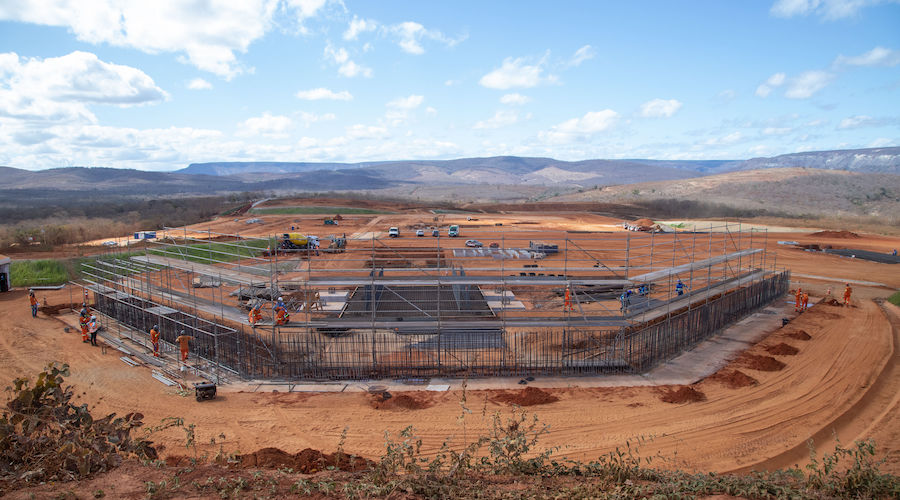
Construction at the Grota do Cirilo lithium project in Brazil. (Image courtesy of Sigma Lithium.)
Tesla Inc. has been weighing a takeover of battery-metals miner Sigma Lithium Corp., people with knowledge of the matter said, amid rampant demand for the metal used in electric vehicle batteries.

The EV maker run by Elon Musk has been speaking with potential advisers about a bid, said the people, who asked not to be identified discussing confidential information. Sigma Lithium is one of multiple mining options Tesla is exploring as it mulls its own refining, one of the people said.
Sigma’s US shares surged more than 25% in aftermarket trading.
Sigma Lithium’s biggest shareholder has been exploring a potential sale of the company and gauging interest from miners and carmakers, the people said. Its biggest investor, holding 46%, is A10 Investimentos, a Brazilian private equity fund that Sigma Co-Chief Executive Officer Ana Cabral-Gardner helped establish. Co-CEO Calvyn Gardner, also owns part of the miner.
Deliberations are in the early stages and may not lead to a transaction, according to the people. Potential suitors may hesitate to bid after shares tripled in the last 12 months and on high price expectations by the owners, the people said. Sigma’s owners could also wait to develop the company’s main project further before seeking an exit, according to the people.
Elon Musk, representatives for Tesla did not respond to requests for comment. Sigma Lithium’s Cabral-Gardner declined to comment on “rumors.”
The company is developing a large lithium rock deposit in Brazil known as Grota do Cirilo. The company said in December that it’s considering nearly tripling lithium production at the project in 2024 after survey revealed mineral reserves 63% higher than previously thought.
Automakers have been pushing into mining more aggressively in an effort to lock in supply for metals needed for EV batteries. General Motors Co. is said to be competing for part of Vale SA’s base metals unit, and took a stake last month in Lithium Americas Corp. to help develop a Nevada mine.
Sigma Lithium’s Toronto-listed shares have soared along with surging lithium prices, giving the company a market value of C$4.2 billion ($3.1 billion). Demand for the silvery white metal, which is key to making EV batteries, is greatly outstripping supply amid the push to electrify transportation in a shift away from fossil fuels.
Sigma Lithium may also attract interest from large miners as well as customers of the metal. Rio Tinto Group, the world’s second biggest mining company, is actively looking for lithium acquisitions, but isn’t currently interested in Sigma Lithium because of the high asking price, one of the people said.
The company has already signed supply deals with LG Energy Solution and Japanese trading house Mitsui & Co.


